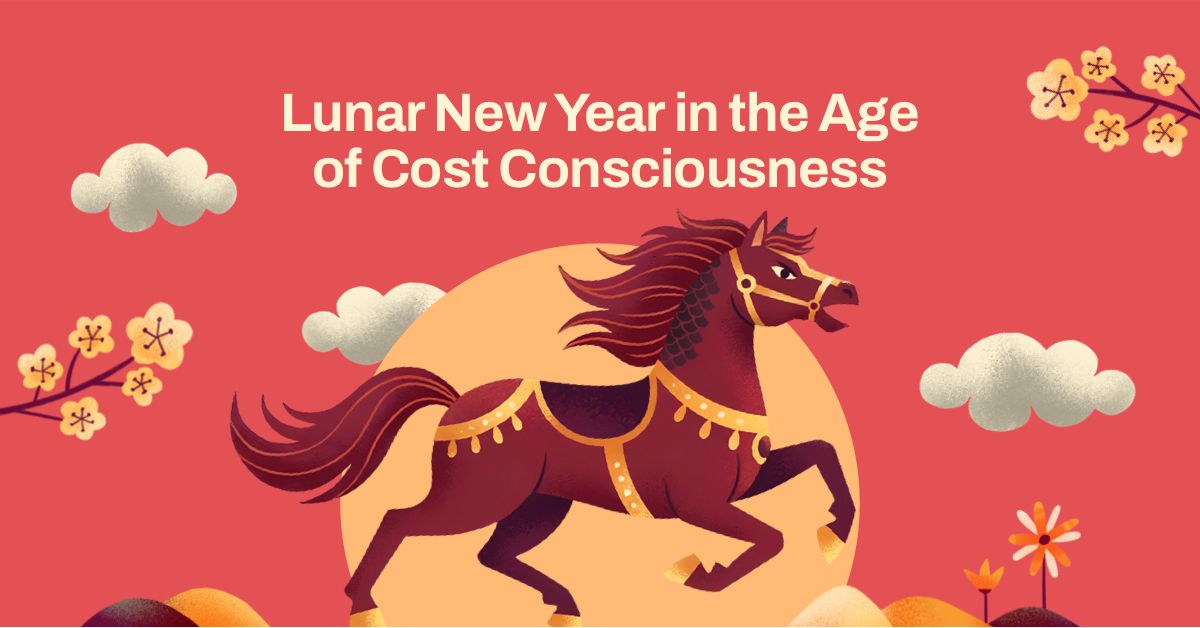Malaysian e-commerce sellers want more: Smarter tools, stronger policies, faster growth

Southeast Asia’s e-commerce market is known for its speed and constant reinvention. In Malaysia, however, sellers are clear about one thing: resilience is not built in isolation. They see it as a partnership—one that requires coordinated support from platforms, logistics providers, and policymakers. The message is straightforward: businesses cannot sustain growth without an ecosystem that actively shares the load.
From platform fees to buyer-first policies, and from overseas competition to last-mile delivery, Malaysia’s 300 surveyed sellers provide a candid look at what resilience really means today and what they need to achieve it.
A young, experienced, female-driven seller landscape
Malaysia’s seller community reflects both maturity and youth. A significant 38% have more than three years of selling experience, the highest concentration regionally. At the same time, sellers skew young, with 46% aged 25–34. This mix suggests Malaysia has both the staying power of seasoned entrepreneurs and the energy of a new generation ready to scale.
The market is also shaped by women. With 55% of sellers identifying as female, Malaysia stands out as a female-skewed professional market where e-commerce continues to create entrepreneurial pathways. Yet the scale of operations is modest: 41% process fewer than 50 orders a month, while another 40% handle between 50 and 100. The picture that emerges is one of stability rather than rapid expansion, with sellers prioritising sustainable operations over aggressive volume growth.
Headwinds: costs, competition, and shifting buyers
Even in a steady market, challenges loom large. Rising logistics costs are flagged by 39% of sellers, overseas competition is a concern for 42%, and evolving buyer expectations weigh on 40%. These numbers reflect a reality that sellers cannot control all the forces shaping their businesses.
Despite these headwinds, sellers remain cautiously optimistic: 44% expect steady or significant growth, although this trails optimism levels in Vietnam. The tone is not defeatist but pragmatic. Malaysian sellers appear to be weighing opportunities carefully, choosing sustainability over high-risk expansion.
Resilience is built, not inherited
For sellers in Malaysia, resilience does not simply mean working harder or cutting costs. Instead, it is shaped by enablers across three fronts: platforms, logistics, and government.
- Digital readiness also underpins resilience: 72% of sellers agree that having access to online tools helps them stay competitive.
- Government-led growth initiatives: 67% of sellers rate clear and supportive regulations as important, and another 67% highlight grants or financial assistance as vital. Sellers see government-led growth initiatives not as extras, but as pillars of resilience on par with platform tools and logistics reliability.
- Policies shape confidence: 39% say new policies improve their confidence, but 29% lose confidence when rollout support is limited, and 9% remain unaware of policies altogether. Government action can strengthen resilience when guidance is clear, but erode trust when new policies are poorly rolled out or communicated.
- Logistics as a fragile backbone: 78% of sellers say fast and reliable logistics are essential. Failures aren’t just operational setbacks- they directly erode revenue and sustainability.
Together with platform enablement, government support forms the twin foundations of seller confidence — one accelerates opportunity, the other protects it. Resilience, in other words, is not just grit. It requires coordinated scaffolding across public and private sectors.
Platforms as partners, but impact must be proven
Most sellers already use platform-provided tools. Promotions management is tapped by 43%, marketing tools by 39%, and buyer protection programs by 36%. Yet when asked about usefulness, the numbers drop to 25–29%. This gap between adoption and impact highlights a clear improvement area for platforms: focus on tools that deliver immediate ROI.
The most desired forms of enablement are practical: visibility boosts (51%), faster logistics (48%), and affordable financing (45%). Training and innovation, while secondary to these operational enablers, remain essential for long-term competitiveness. Sellers are prioritising executional support that delivers measurable business impact.
Importantly, sellers are not resistant to fees. In fact, 65% agree they should contribute to long-term ecosystem growth, with only 5% disagreeing. The majority are prepared to co-invest in new features and programs, provided the ROI on sales and buyer trust is clear. For them, proof of value is non-negotiable. This openness to sharing costs signals a new phase in Malaysia’s e-commerce journey- one that moves beyond subsidy-driven expansion toward sustainable, value-based growth. Platforms that consistently demonstrate tangible returns will win and sustain seller trust.
The cost question: value over burden
Costs dominate the seller conversation. 40% identify operating costs as a barrier, and 51% highlight shipping costs specifically. But when it comes to platform fees, the sentiment is nuanced:
- 43% are willing to accept fees if tied to performance outcomes.
- 39% are open if fees clearly grow sales.
- Two-thirds agree they should co-invest in ecosystem growth.
This reflects a pragmatic stance. Sellers are willing to invest, but not without transparency. Sellers see fees as investments, not burdens, but only when value is proven. Rising costs may be unavoidable, but sellers’ bottom line is whether they are getting what they pay for, from logistics to platform infrastructure. Therefore, platforms must consistently demonstrate ROI to maintain seller trust and outlast competitors.
Buyer-first policies: from trust to tangible growth
Sellers in Malaysia understand that buyer-centric policies are central to growth. Product authenticity (48%), secure payments (42%), and reliable delivery SLAs (44%) rank as the most valued. But more importantly, sellers directly link these policies to commercial outcomes e.g. larger basket sizes (52%), repeat purchases (49%), higher sales (47%), and stronger ratings (43%).
Still, in Malaysia’s price-sensitive market, trust-building features must be paired with promotions and subsidised shipping. Sellers view buyer trust as critical, but recognise that cost incentives continue to drive conversions. Platforms that invest in building buyer trust will foster stronger, more sustainable customer retention, ultimately driving long-term commercial success for sellers.
Logistics: the fragile backbone of resilience
Logistics consistently emerges as the most fragile link in Malaysia’s e-commerce chain. The challenges are severe:
- 44% report late deliveries,
- 41% face lost or damaged parcels,
- 34% encounter poor customer service.
These failures translate into:
- 37% losing sales,
- 40% receiving negative reviews,
- 30% facing higher refund requests,
- 32% reporting declining buyer loyalty.
For sellers, logistics is not just an operational issue- its failures erode buyers' trust, and is a direct threat to a seller’s growth and long-term sustainability. Critically, 78% of sellers are calling for platforms to enforce higher accountability and standards across logistics partners. The message is clear: logistics is the fragile backbone of resilience, and without decisive platform-level intervention, seller sustainability is at risk.
Global competition: a survival risk, not just pressure
Global competition is no longer a moderate challenge. 57% of Malaysian sellers report high or very high impact from overseas competitors, with 42% citing pricing pressure, 36% visibility loss, and 42% margin squeeze. Most starkly, 75% agree that without strong platform initiatives, foreign competition threatens their survival.
In response, sellers double down on differentiation via local products and personalised service (46%). But they admit they cannot win on price alone. That’s why they call for joint action from platforms and policymakers:
- From platforms: campaigns that highlight local sellers (46%), voucher and discount schemes (59%), faster local logistics (48%).
- From the government: tax relief (48%), MSME subsidies/incentives (41%), consumer protection policies (43%), and investments in logistics and infrastructure (39%).
Global competition is seen as an existential survival risk- one that demands urgent, coordinated responses from both private and public sectors.
What platforms and policymakers should do next
Seller voices in Malaysia point toward six clear priorities:
- Prove ROI on fees: Sellers are open to co-investing but demand transparency on how fees translate into sales and visibility.
- Advance digital readiness: Expand access to digital tools and training that sustain competitiveness in a fast-evolving market.
- Fix logistics reliability: Enforce higher standards and accountability across providers.
- Combine trust with incentives: Pair buyer-first policies with promotions to match Malaysia’s price-sensitive market.
- Champion local sellers: Elevate local products against global entrants through campaigns and vouchers.
- Build government scaffolding: Strengthen regulations, rollout support, tax relief, and MSME incentives as pillars of seller confidence.
Malaysian sellers are pragmatic , partnership-minded and outcome-driven. They are not asking for handouts, nor are they resistant to fees. Instead, they are prepared to co-invest when returns are tangible. Resilience in this market is not about going it alone, it is about building shared systems of support where platforms, logistics providers, and policymakers each play a role. Sellers are ready to invest, but only in ecosystems that prove their value.

Author
Milieu Team
At Milieu, we’re a team of curious minds who love digging into data and uncovering what drives people. Together, we turn insights into stories—and stories into action. We also run on coffee, deadlines, and the occasional meme.
.avif)





